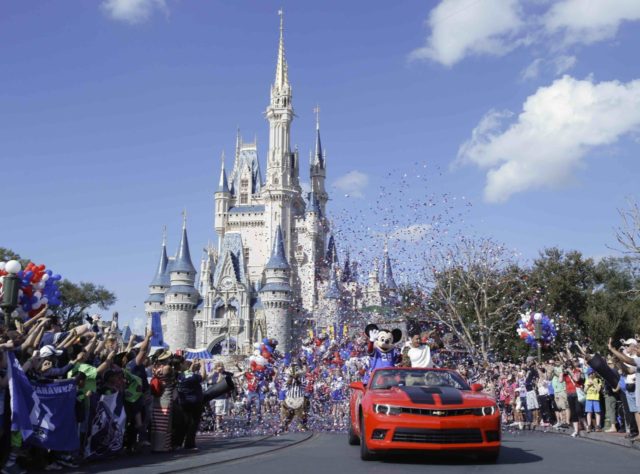Radical Islamic terrorist Omar Mateen almost appears to have chosen the Orlando nightclub “Pulse” because he knew the media coverage of his slaughter would continue to hammer Florida’s huge tourism-based economy.
Tourism is the number one industry in Florida, whose tourism sector is second only to California. With over 86.5 million annual visitors last year, the industry generated over $67.5 billion in revenue, provided one million jobs and accounted for 23 percent of the state’s sales tax revenue.
By attacking the most popular destination city in the state, Mateen knew his actions would maximize the political and economic pain.
The Orlando attack follows similar ISIS-inspired attacks, including the November 2015 Paris nightclub slaughter of 130 people (injuring 365) and the March bomb blasts at the Brussels international airline terminal that killed 35 people and wounded over 300.
The economic impact of the Brussels terror onslaught caused the average local hotel occupancy rate to plunge about 82 percent before the attack, to just 25 percent for some hotels, according to STR Analytics, which tracks European hotel industry data.
The U.S. State Department, in a strongly worded advisory, warned Americans of the “potential risks” of travel in Europe — its first EU-wide alert since 2010. It cautioned U.S. citizens that “terrorist groups continue to plan near-term attacks throughout Europe, targeting sporting events, tourist sites, restaurants and transportation.”
With hospitality and tourism making up about a tenth of Europe’s gross domestic product, European cities across the continent felt an immediate economic blow-back. Average hotel occupancy rates plummeted 24.7 points in London to 58 percent, and 15.1 points in Paris to 67 percent over the next week, according to STR.
The United Nations World Tourism Organization in January had estimated a 3.5 to 4.5 percent rise in international tourist arrivals for Europe in 2016. The UNWTO stated that due to the negative impact of the Paris attack, it expected growth to be down from the over 5 percent gain in 2015.
But that was before the ISIS-inspired March 22 Brussels massacre, and the June 13 terrorist attack in the Paris suburb of Les Mureaux this week that cost the lives of a police commander and his wife.
U.K. travel firm Thomas Cook had reported in May that summer travel bookings were 5 percent lower than last year. Chief Executive Peter Fankhauser told Market Watch: “The uncertain geopolitical environment is causing some customers to postpone booking their holidays.”
Mateen is reported to have also cased nearby Disney World as the terror target, but seems to have chosen the crowed Pulse nightclub in Orlando because it had only one exit and was a gun-free-zone.
Peter Tarlow, President of Tourism and More, commented that new technology has lowered transportation costs and increased trade and capital flows across nations. But the same technology that has fostered international economic growth has also allowed terrorism to spread easily among countries whose interests are tightly interwoven.
He worries that “the political and cultural narrative that comes from these terrorist attacks may be as important as the military one.” Terrorism is no longer solely a local issue, because radicals can strike from thousands of miles away and cause vast destruction. And people know that providing 100 percent security at tourist resorts and public venues is a “mere fiction.”

COMMENTS
Please let us know if you're having issues with commenting.